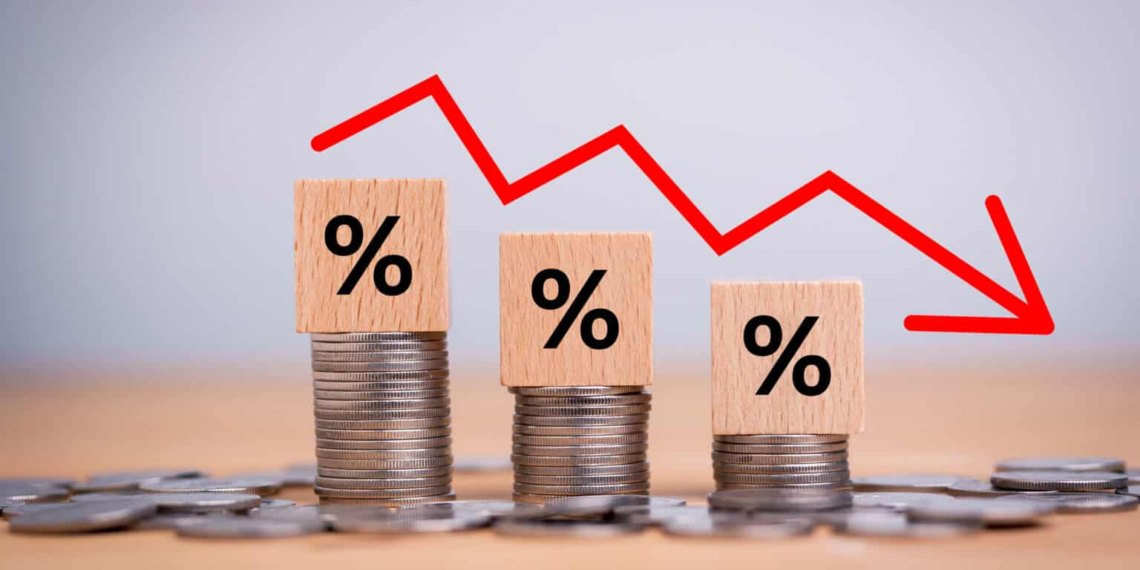Ghana’s Producer Price Inflation (PPI) has plummeted to 3.8% in July 2025, marking the lowest level recorded since November 2023. The latest data from the Ghana Statistical Service (GSS) revealed that producer inflation declined by 2.0 percentage points from June’s figure of 5.8%, extending a downward trend that has persisted for six consecutive months.
This steep drop signals a notable cooling of cost pressures faced by businesses, although it also presents a mixed bag of opportunities and challenges for different sectors of the economy.
The mining and quarrying sector, Ghana’s largest contributor to PPI with a weight of 43.7%, saw its inflation rate ease from 6.5% in June to 4.6% in July, representing a 1.9 percentage-point fall.
The manufacturing sector, which makes up 35% of the PPI, recorded an even sharper decline, dropping from 7.2% in June to 3.6% in July 2025. This 3.6 percentage-point dip highlights the critical role manufacturing and mining played in dragging down overall producer inflation.
Together, these two dominant sectors accounted for the bulk of the decline, underscoring how sector-specific cost reductions ripple across the wider economy.
While some sectors saw easing inflation, the transport sector continued its deflationary streak. Transport costs fell deeper into negative territory, sliding from -7.0% in June to -8.1% in July 2025.
On the other hand, hotels and restaurants experienced no change, with inflation stuck at 2.6%, reflecting stability in hospitality pricing even as other sectors saw sharp shifts.
What It Means for Businesses
The GSS highlighted that the decline in producer costs presents both opportunities and risks for enterprises. On the one hand, lower input prices reduce cost burdens, potentially allowing firms to operate more efficiently. On the other, the fall in inflation also signals tighter margins, making profitability harder to sustain if companies fail to adapt.
“Businesses must rethink pricing and renegotiate smartly,” the GSS advised. “The falling costs bring opportunity, but tighter margins too. Stay ahead by innovating, not just adjusting prices.”
For manufacturers, this may mean investing in efficiency improvements, while mining firms could explore value-addition rather than relying on raw exports.
The government has also been urged to seize the moment by locking in stability and implementing targeted incentives for key industries. The GSS noted that supporting mining and manufacturing—two sectors pivotal to Ghana’s economic output—would be essential for sustaining job creation and growth.
“Boost production, protect jobs, and support demand with smart incentives,” the Service recommended. If properly managed, the sharp decline in producer inflation could become a springboard for more sustainable economic growth in the medium term.
Impact on Consumers and Households
For households, the PPI figures raise an important question: will lower producer costs translate into cheaper goods and services at the retail level? The GSS insists that if all else remains constant, falling producer prices should eventually ease consumer price inflation.
“Buy smart, question markups, and support brands that pass savings on,” the Service urged consumers. The advice highlights the need for vigilance, as not all businesses may be quick to pass on cost reductions to end-users.
If retailers and service providers respond accordingly, households could soon experience relief in their day-to-day expenses, particularly in food, manufacturing-related products, and transport services.
The nosedive in producer inflation is a double-edged sword. On one side, it reflects stability and declining cost pressures, a welcome development after years of high inflation that strained businesses and households alike. On the other side, it serves as a cautionary signal of weak demand and the possibility of revenue pressures on businesses.
The government, businesses, and consumers now stand at a critical juncture. Smart policymaking, innovation, and consumer vigilance will determine whether this decline in PPI becomes a catalyst for broader economic relief or merely a temporary dip in an otherwise uncertain outlook.
READ ALSO: Tullow Oil in Refinancing Talks as $1.3 Billion Bond Deadline Nears























